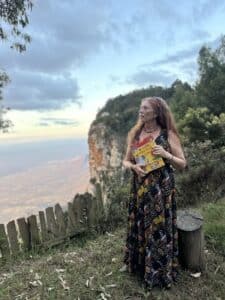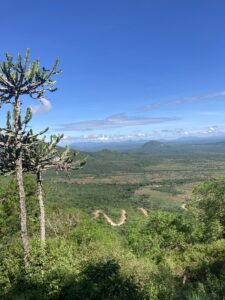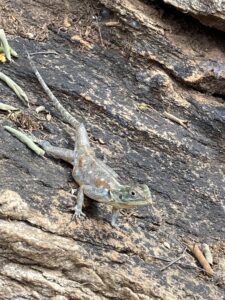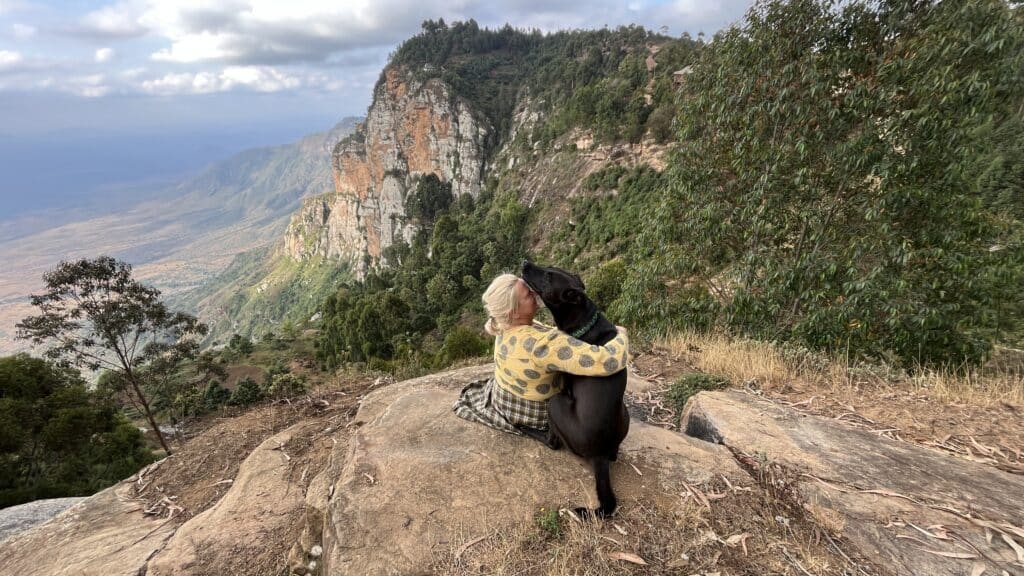🏝️ What is the weather like in Tanzania?
Tanzania is located close to the equator, but because of its geography – from the Indian Ocean coast to the peaks of Kilimanjaro and the highlands of the Usambara Mountains – the climate varies. Coastal regions and islands like Zanzibar tend to be hot and humid throughout the year. The central plateau and mountain areas are cooler, especially at night.
There are two main rainy seasons: the long rains (Masika) from March to May, and the short rains (Vuli) in November. During these months, travel is still possible, but some roads in rural areas may become challenging. The dry season (June to October) is considered the best for safaris, as wildlife congregates around waterholes, making it easier to spot. December to February is also a popular period with warmer, sunnier weather.
🩺 Do I need vaccines before travelling?
Yes, vaccines are highly recommended. Travellers should consult a doctor or a travel health clinic at least 6–8 weeks before departure. Common recommendations include:
- Yellow fever (especially if arriving from an endemic country – you may be asked for proof of vaccination at entry)
- Hepatitis A and B
- Typhoid
- Tetanus, diphtheria, and polio booster
- Rabies (recommended for longer stays in rural areas)
For malaria specific information please read carefully dedicated article HERE
🛂 What are the visa requirements?
Most travellers need a visa to enter Tanzania. The easiest way is to apply online for an e-visa before arrival, through the official Immigration website: https://eservices.immigration.go.tz/visa.
You can also obtain a visa on arrival at major airports and some land borders, but the process may take longer. A standard tourist visa is valid for 30 or 90 days. Make sure your passport is valid for at least six months beyond your entry date and has blank pages.
💵 What currency should I bring and use?
The local currency is the Tanzanian Shilling (TZS). US dollars are widely accepted in hotels, safari lodges, and for park fees, but everyday expenses (local transport, markets, small shops) require shillings.
ATMs are available in larger towns and cities, but not in remote areas. Credit cards are accepted in many tourist-oriented businesses, but often with a surcharge of 3–5%. Bring some cash in USD for backup, but smaller expenses are best handled with shillings.
⏰ When is the best time to travel?
It depends on what you want to experience:
- Safaris & Wildlife Viewing: June–October (dry season)
- Climbing Kilimanjaro & Trekking: January–March and June–October
- Beach Holidays (Zanzibar, Mafia, Pangani): Year-round, though March–May can be rainy
- Birdwatching: November–April, when migratory species arrive
For the Usambara Mountains, the weather is cooler year-round, making it a pleasant destination even in warmer months.
🎒Can I travel solo in Tanzania?
Yes, Tanzania is a welcoming country for solo travellers. Many people come alone for safaris, trekking, or volunteering. In towns and villages, locals are generally friendly and curious, often greeting you with smiles and “karibu” (welcome).
Solo travel does require some caution – avoid walking alone at night in cities, keep an eye on belongings, and choose registered guides or tour operators. In rural areas, like the Usambaras, you’ll often find that people look out for visitors, and being alone can make it easier to connect with the community.
⛑️ Is Tanzania safe?
Tanzania is considered one of the safer destinations in East Africa. Petty theft can occur in busy areas, so take common-sense precautions such as using a money belt and keeping valuables hidden. Larger crimes against tourists are rare.
In safari areas and national parks, the greatest risk comes from wildlife – always follow your guide’s instructions and never get too close to animals. In coastal areas, currents in the ocean can be strong, so swimming with local advice is best.
🧳 What should I bring on safari?
Packing right makes a big difference. Essentials include:
- Neutral-colored clothing (avoid bright colors and dark blue, which attracts tsetse flies)
- A hat, sunglasses, and sunscreen
- A good pair of binoculars
- Camera with extra batteries and memory cards
- Comfortable walking shoes
- Light jacket for cool mornings and evenings
- Insect repellent
Avoid overpacking. Many safari lodges offer laundry services, and your guide will appreciate a lighter vehicle.
🛖 How do I choose ethical destinations in Tanzania?
Responsible travel supports communities and protects the environment. When choosing accommodations, look for places that:
- Employ local staff at fair wages
- Source food and materials locally
- Contribute to community projects
- Have eco-friendly practices
At Uvi House & Restaurant in the Usambara Mountains, for example, visitors directly support educational programs for children and sustainable development in the local community. Choosing such destinations ensures your money benefits the people who host you.
🦜 What about birdwatching in Tanzania?
Tanzania is a paradise for birders, with over 1,000 species recorded. Famous hotspots include Lake Manyara, Serengeti, Ngorongoro, and the Selous. The Usambara Mountains are particularly special, as they host many endemic species found nowhere else, such as the Usambara weaver or the Amani sunbird.
November–April is prime birding season, when migrants from Europe and Asia join resident species. Carry binoculars and a good field guide, and consider hiring a local bird guide to get the most out of your experience.
🪫 What about electricity in Tanzania?
Electricity supply in Tanzania can be unreliable, with occasional power cuts, especially outside major cities. Most tourist lodges and hotels have backup generators or solar power.
The power sockets in Tanzania are the British type (Type G). Travellers should bring a universal adapter or British plug connectors. If you plan to charge multiple devices, a small power strip can be very useful.
🇹🇿 What language is spoken in Tanzania?
Swahili (Kiswahili) is the national language and widely spoken. English is also an official language and used in business, government, and tourism. In rural areas, knowing a few words of Swahili goes a long way – simple greetings like “jambo” (hello), “asante” (thank you), or “karibu” (welcome) will be warmly received.
👗What should I wear?
Light, breathable clothing works well for most of the country, but modesty is appreciated, especially in rural areas and Zanzibar, where the population is majority Muslim. For women, covering shoulders and knees in villages is a sign of respect. In cities and on safari, casual attire is fine, but keep a jacket or sweater for cooler evenings in the highlands.
💦 Can I drink tap water?
No, tap water in Tanzania is not safe for drinking. Always use bottled or filtered water, which is widely available. Many eco-lodges provide refill stations to reduce plastic waste. Use bottled water also for brushing teeth if you are sensitive.
🦎 What should I know about visiting the Usambara Mountains and Uvi?
The Usambara Mountains are often called the “Green Heart of Tanzania” – a lush, biodiverse region perfect for trekking, birding, and cultural immersion. Life here moves at a slower pace, and visitors often describe their stay as a step back in time.
If you are planning to visit Uvi House & Restaurant, be prepared for cool evenings (bring a sweater), breathtaking hikes, and genuine connections with local communities. Staying at Uvi also means your visit supports educational programs for hundreds of children in the region. Roads to the Usambaras can be winding, so patience is required, but the reward is an authentic Tanzanian experience far from the crowded tourist circuits.
If you want to learn more how to organize your unique tour in Tanzania




